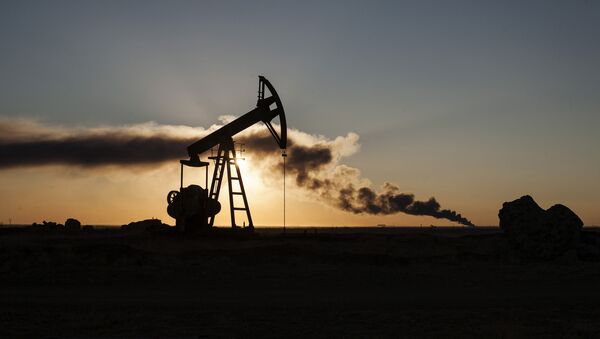A group of prominent experts on energy, economics and geopolitics told Politico about the aftershocks the world should be bracing for due to the falling oil prices.
The drop in oil prices will be one of the most important issues if 2016 and will have consequences both for the global economy and politics, John McLaughlin, distinguished practitioner-in-residence at Johns Hopkins University at the Paul H. Nitze School of Advanced International Studies, said.
While oil prices are extremely hard to predict currently there is every indication that "they will not go up markedly, and may drop further," McLaughlin said. Countries like Saudi Arabia that used to manipulate the market with OPEC agreements have lost their ability to do so. What is more, the Persian Gulf is the region where the political impact of the low oil prices is likely to be the strongest.
"Despite all the current hype, only a relatively thin margin separates surplus from shortage. Global crude oil production has already dropped substantially, with U.S production falling to 2008 levels. […] And widespread conflict in oil regions—exacerbated by low and unstable oil prices—could significantly disrupt supply at almost any time," the analyst said.
According to co-director of the Institute for the Analysis of Global Security Gal Luft, the current situation in unlikely to last for long. Oil prices may jump again as they did between 1998 and 2008 if the global economy starts recovering from stagnation.
"As long as the global transportation sector — cars, trucks, ships, planes — is married to oil, and as long as most of the world’s conventional crude reserves are in the hands of repressive regimes, it’s only a matter of time before prices head back to triple digits," Luft concluded.
"Across the region, there are immediate and direct security threats without any social, political or economic reform processes in place to address the challenges these regimes face from the inside. What keeps these countries together — as well as those that rely on them for support — when the oil money runs out?" the analyst told Politico.
He added that the US, China and Japan would benefit the most from the situation, while Europe not so much.




